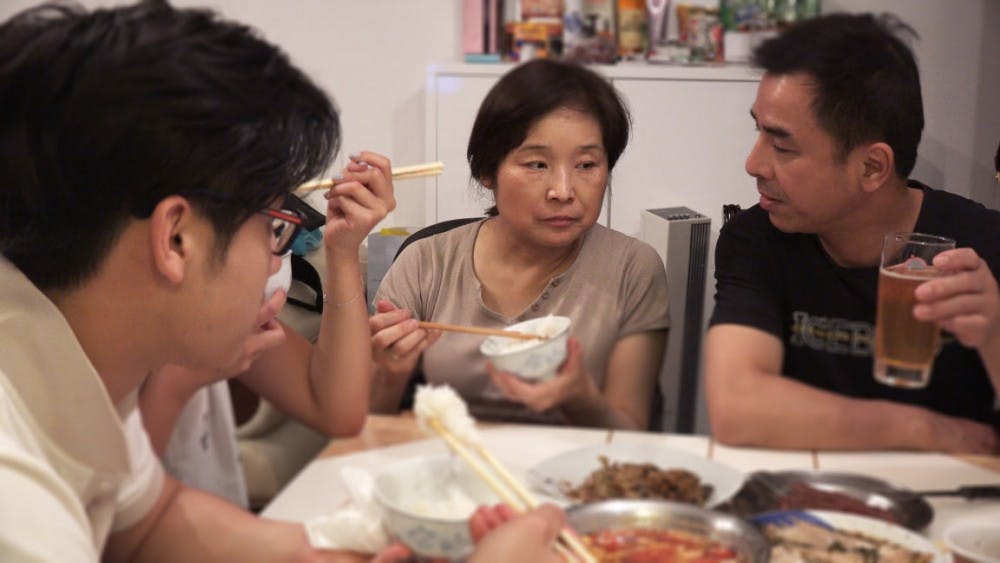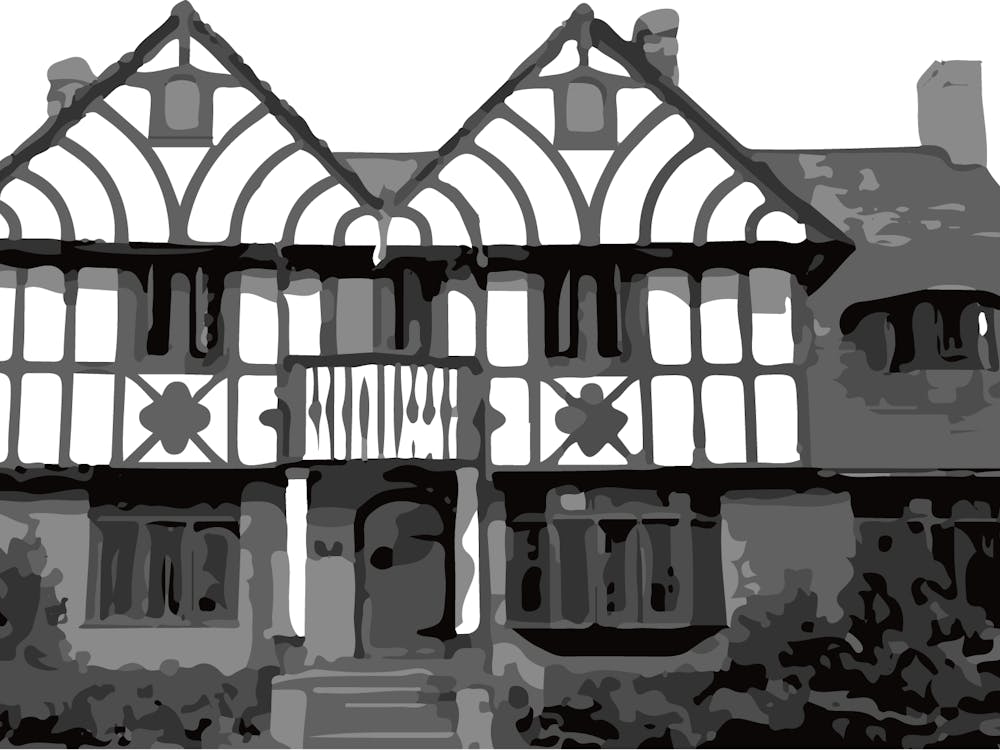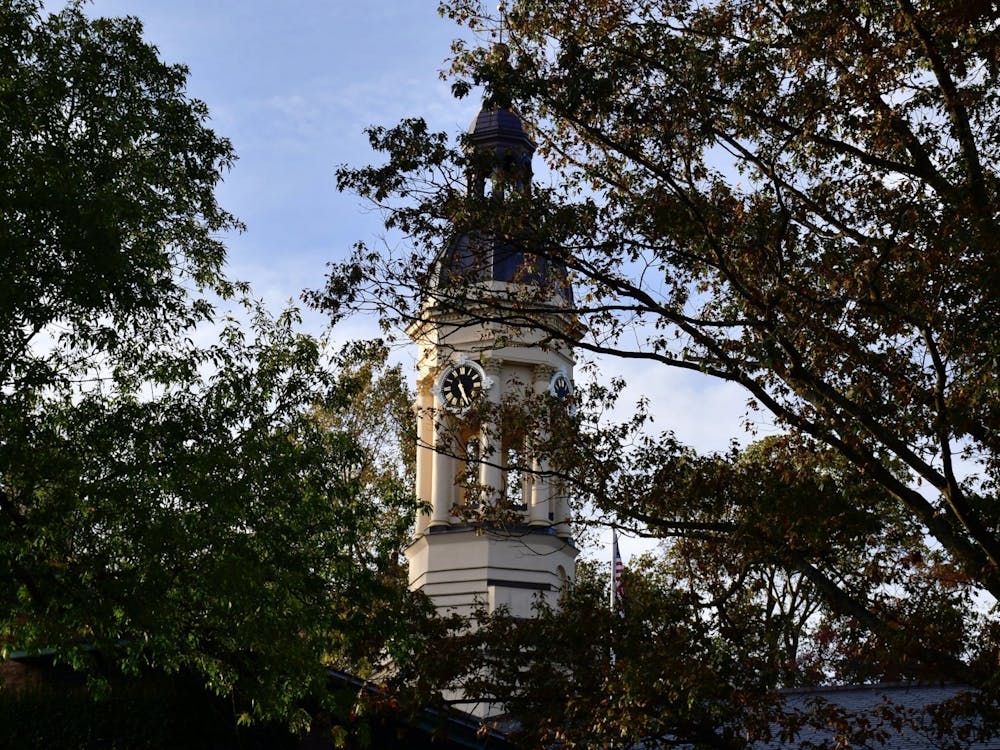The Martin A. Dale ’53 Summer Award is a University-sponsored funding opportunity for undergraduates who want to design their own summer project. Twelve sophomores from different residential colleges are given $5000 to create projects that develop “personal growth, foster independence, creativity, and leadership skills, and broaden or deepen some area of special interest.” We interviewed three students who were recipients of the award: Rabia Khan ’18, Marlyn Bruno '17, and Michael Manning '17.
Daily Princetonian: Could you tell me a little bit about your project, and what aspect of the Dale Fellowship was most appealing to you?
Rabia Khan: My project (Exploring Islamic Spirituality and Muslim Heritage) essentially involved exploring Islamic history and different aspects of spirituality in places where it was deep-rooted: southern Spain and Morocco. I visited mosques, old medinas, ruins, 12th- to 14th-century fortresses and palaces built by different Muslim dynasties, and spent a week with Al Firdaus Ensemble, a Sufi music group, that grows closer to faith through music. It’s hard not to see why this project would be attractive; you get to travel, explore, experience new things! What I especially loved about the project was the independence I had in deciding what I would do, in stepping away from the horrendous climate of politicized Islam I was witnessing back in America, and stepping into lands where Islam’s mark was something of a wonder.
Marlyn Bruno: I wanted to highlight the diversity in cultures by creating a digital cookbook (Sustenance: An Exploration of Latin American Cultures) that featured food from all around South America. It was a lot more than just learning to cook: a lot of the emphasis was placed on how food can let us connect with others in the creation process or while sharing a meal.
Michael Manning: My project (Tracking the Bear, San Francisco and Australia) revolved around collecting personal interviews from people who knew my Uncle Owsley Stanley. He was an engineer for the Grateful Dead, an artist, and for three years a famous LSD chemist. The most attractive aspect was getting to know my uncle better. He passed away in 2011, when I was a sophomore in high school, just as I was coming to understand how much of an important historical/cultural figure he was. There were so many questions I would have liked to ask my uncle, but it was, of course, impossible. Talking to these other individuals, who knew my uncle at various points in his life, was the next best thing.
DP: So where did your interest to start this project come from?
RK: I was honestly very appalled by the way my faith had twisted into a media-informed, politicized Islam, especially in the past year before Dale started. That is the main reason I wanted to do my project: to explore and share a side of Islam that people often don’t see, its history, its music, its art, its people! I had also heard stories from Imam Sohaib, the Muslim chaplain on campus, about his trips to Morocco and Spain and the incredible wonder he felt with the bustling medinas and alcazars, the rich sense of history and music, and the contrast between the two places that stunned him. For him, these trips spurred reorientations of faith, but to me, having not experienced them myself, they were just words. Still, these words inspired my desire to travel to these particular locations.

MB: I wanted to learn how to cook. I'm also Mexican-American so I grew up understanding that food should be taken seriously because it was a way to bring my large extended family together. Also, I wanted to see what other Latin Americans cultures were like.

RK: My project opened my eyes in ways I wouldn’t have imagined. Since I was a little girl, I liked to believe that there are hidden treasures in every pocket of the universe. And perhaps from reading many novels, I knew in my heart that some treasures were right in front of our eyes, and it was only our perception that would determine whether we saw it or not.
During my travel abroad, I saw countless historical monuments, fortresses, palaces, mosques, etc. dating as far back as 2000 years, carved in intricate patterns and brushed with timeless paints. Sometimes I would visit a site only to marvel for hours at a time how carefully crafted and incredibly significant the place where I stood once was. I’d flip back hundreds of years to try and imagine what that very place would have looked like in its golden era. But we are mere humans who are limited in this sort of imagination and so I will never truly know.
I've realized from my Dale project that this sort of wisdom is visible through its people who exude the years of history of religion and politics that make them who they are. When I pass through Granada’s streets and hear indie tunes from a local musician’s guitar or get invited for fresh mint tea at nearly every Moroccan city I’ve been to, I feel those years of history in the making.
The call to prayer filling the streets of Morocco today is same call to prayer hundreds of years ago, and that is the treasure truly worth noticing. The treasure that everyday life in Spain and Morocco and it’s beautiful people bring ... it was just a matter of perspective before I came to understand that
DP: What did you take away from the process?
MM: An understanding that, even though I didn’t know about wide swathes about my uncle’s life, I still understood him as a person. Knowing someone for a long time doesn’t necessarily mean you know the person better than someone who’s known them for only a few years. It’s the profundity of interaction that determines understanding. Although I only knew my uncle for the first fifteen years of my life, I do believe I understand him because we had such deep, memorable interactions together. Dale affirmed to me that there are many different versions of a particular “self,” scattered throughout an individual’s lifetime, and to understand someone is inherently subjective.
RK: The Dale scholarship really gave me a chance to do something I’d probably secretly wanted to explore since forever. Besides completing what I had hoped for my Dale project, I learned the value of a U.S. passport, I saw how beautiful it is when you take a chance and get to know someone new, and I made many valuable friendships abroad. The confidence that Dale gave me as a female travelling alone in a foreign country and on her own terms is an experience unparalleled to any other, and one I am very thankful for.
DP: How did you design the project?
MM: The project included a four-week stay in San Francisco and a three week stay in Australia (where my uncle’s widow, my Aunt Sheilah, lives). I realized that a large portion of my project would materialize once I was on the ground in California and Australia. Many of the interviews I collected were not planned for in advance. I had a positive experience as a researcher, and I still keep in touch with many of the individuals I met on my Dale. I’m using my Dale research to create my Senior Thesis in the Music Department as a biography of my uncle.








